Can Matcha Cure Burnout?

In the penthouse of a no-frills building in New York’s Union Square neighborhood sits a soundproof room, complete with a man-made babbling brook, which blocks out the hustle and bustle of the noisy city below.
Tranquil water sounds, Shoji-style walls, sliding doors, floor mats and subdued colors also fill the space. To get there, patrons must travel through the building’s dark halls, up the understated elevator and remove their shoes in order to walk across the step stones on the floor. But once inside, visitors are transported to what looks and feels like a traditional teahouse in the middle of Japan.
More from WWD

“I love it here because I feel like I’m in a different world. But we’re in Union Square,” says Silvia Mella.
For nearly three years, Mella has been attending tea ceremonies at Globus Washitsu, a teahouse and traditional Japanese meeting center in New York, promoting her matcha green tea brand Sorate along the way. (Sorate is the matcha tea served by way of a partnership with the teahouse.) Mella, as founder and creative director of Sorate, wants to educate consumers on the health benefits of matcha and its history, which dates back thousands of years.
“Matcha, in Japan, is a medicine. Then it became ceremonial through the Buddhist monks,” Mella explains.
That’s the simplified version. But in an era of Instagram, matcha has become seemingly ubiquitous, popping up in lattes, bubble teas, desserts and more. It’s also a popular ingredient for party cakes and Pinterest boards alike. But few people know about matcha’s health benefits. Proponents of the tea claim the superfood can help cure some cancers; improve brain function; reduce dementia; promote liver, lung and heart healthl prevent cavities, and reduce inflammation. Medical doctors have not confirmed these claims.
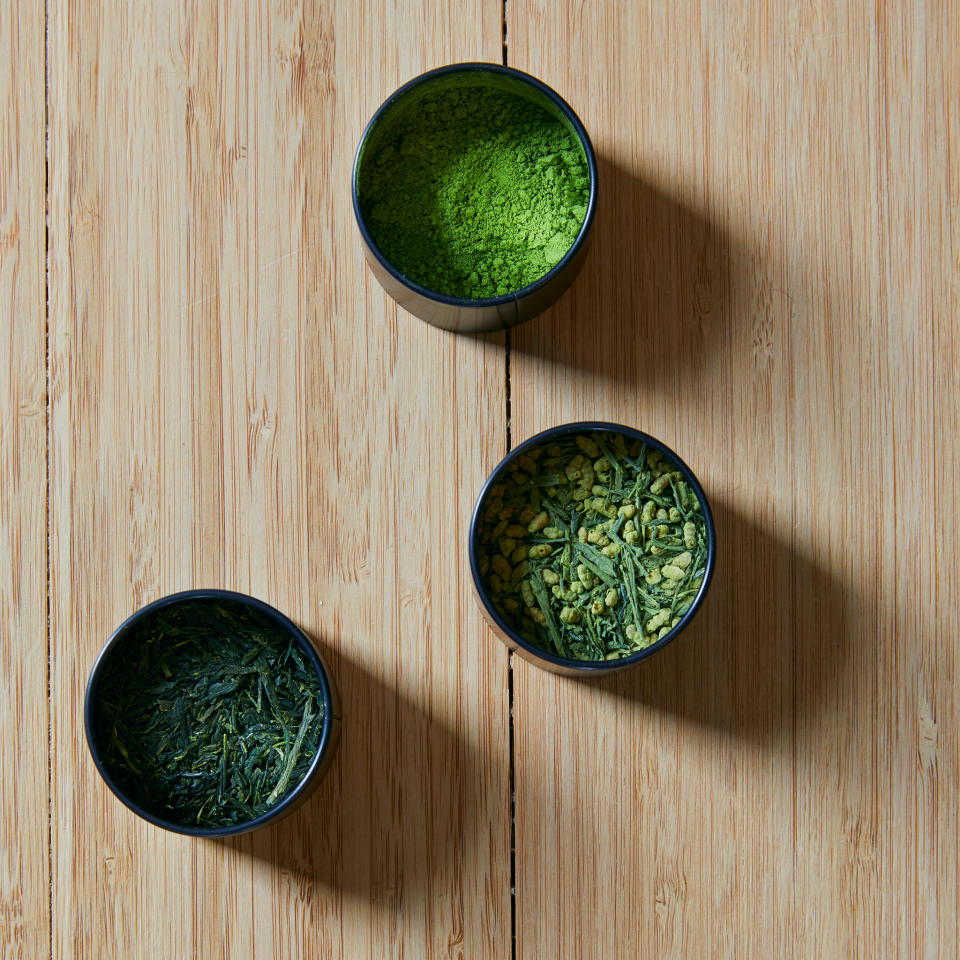
Still, that’s a tall order for the bright green powder. What scientists do know is that the tea plant is not grown in direct sunlight. The lack of light causes an excess of chlorophyll, creating the unmistakable color. It also results in an increase in the amino acid theanine, which contributes to the distinct taste, and matcha powder contains antioxidant and anti-inflammatory substances.
Not all matcha lovers are aware that traditional Japanese tea ceremonies surrounding matcha date back thousands of years. The exact origin of matcha is unclear. But it is generally believed to date as far back as sometime between the eight or 10th centuries in China, before a monk brought it to Japan to help improve his focus during meditations. The calmness mixed with alertness that it creates is believed to help improve focus, the tea masters at Washitsu say.
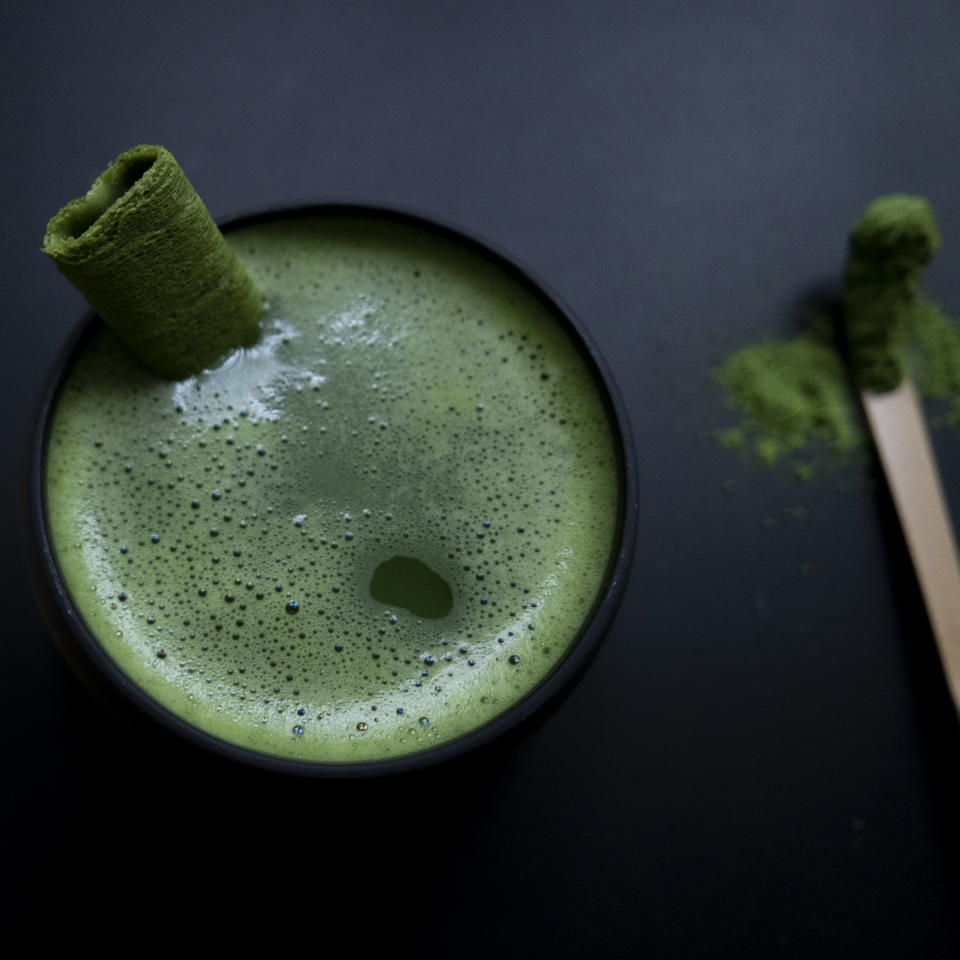
Mella’s path to matcha began after her own experiences with burnout. The New York-based entrepreneur was producing visual content for fashion companies such as Net-a-porter, Fendi and Topshop for a decade before she decided to try something new.
“I was pretty overwhelmed and I didn’t like the [fashion] industry anymore,” Mella explains. “So I took a break for a month and I went to Japan by myself over the summer, just to decompress and travel alone. And I loved it. I completely loved the culture and the aesthetic of everything. The mindfulness that they have. And I started drinking tea multiple times a day, because they have tea like tap water here, basically. It’s everywhere. When I came back [to the U.S.] I continued drinking tea. Matcha definitely helps you relax. I mean, it doesn’t do miracles, but it definitely helps.”
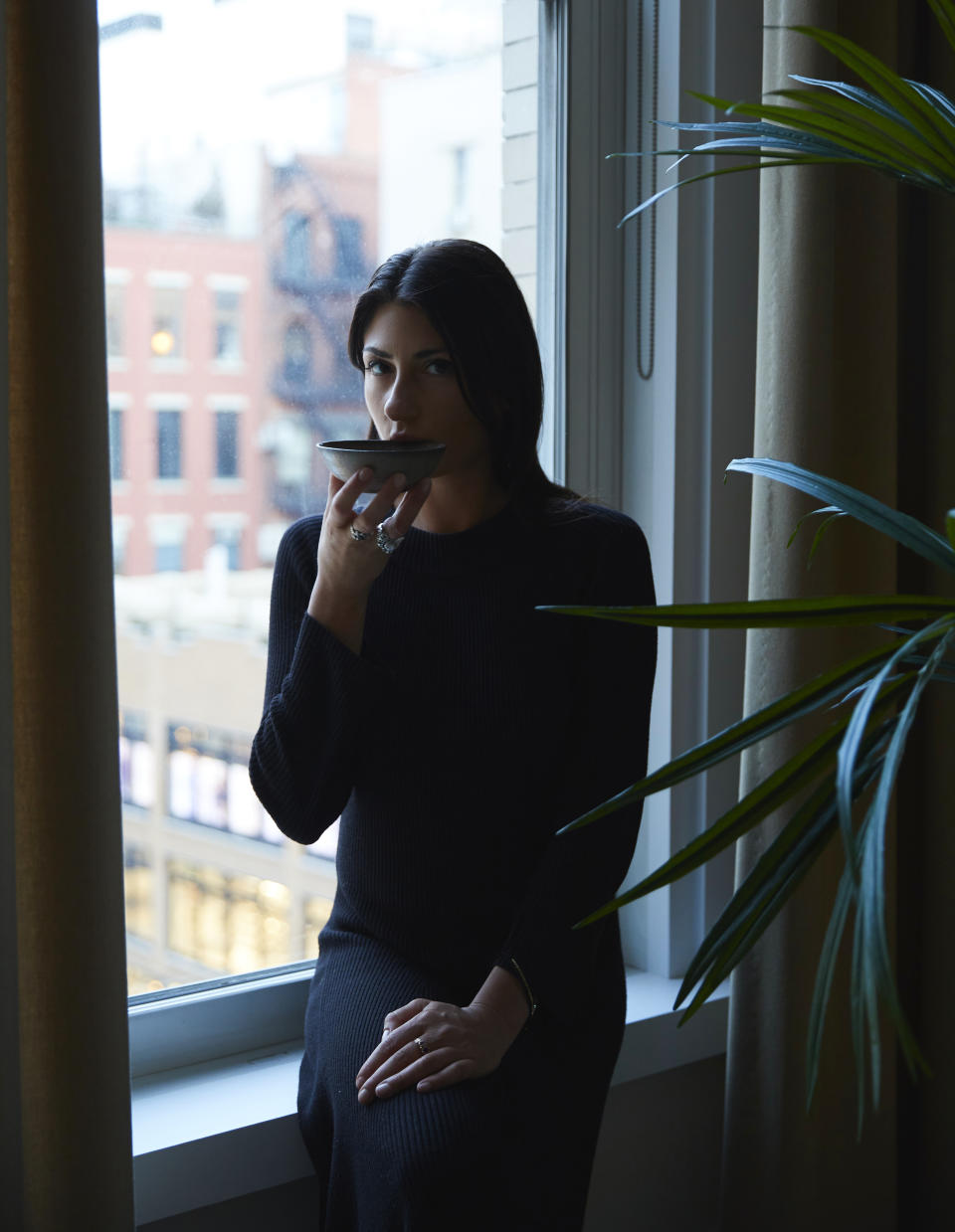
Whether or not matcha can live up to all the hype of its superfood status is unclear. But Washitsu and other upscale tea and traditional Japanese ceremonies — which can range in price from $60 to close to $200 a pop — are meant in part to help people slow down for a moment of self care, Mella says.
“The process of making matcha helps you calm down,” she explains. “When you prepare your matcha — even if it’s really quick in the morning, before going to work — it is literally just 30 minutes that you can take that you can focus on the moves to make the matcha. During the tea ceremony, every move that [the tea master] makes has a meaning; she doesn’t just throw the water in the pot. We can’t do that every morning. But some days, before your next meeting, you can just think about the tea for two or three minutes. It’s like three minutes of meditation, basically.”
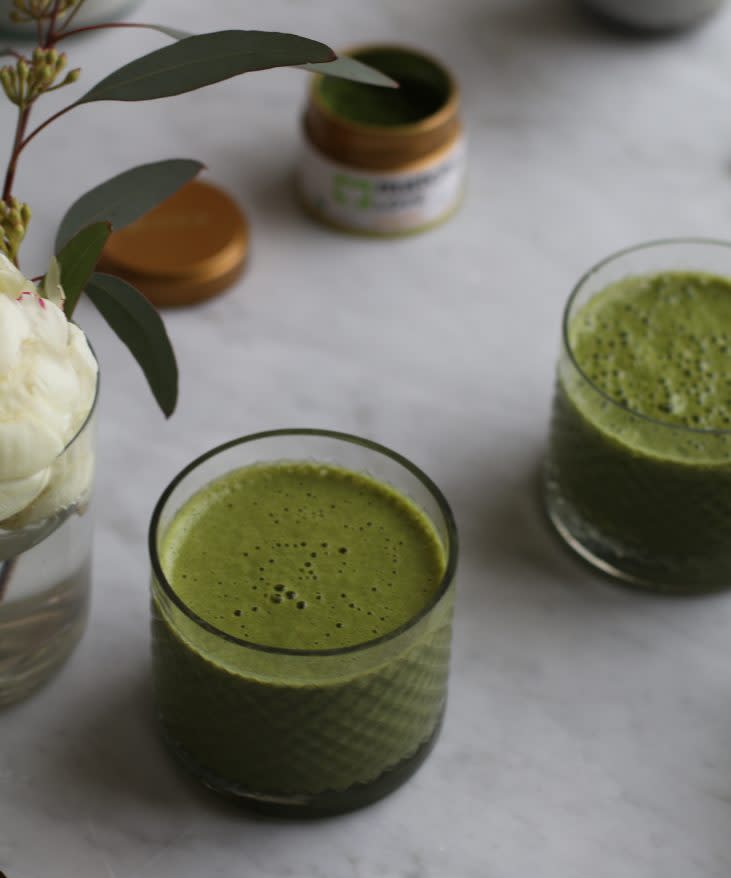
Matcha’s popularity has continued to grow in recent years thanks to a variety of mainstream coffee houses, including Starbucks and Dunkin’, offering their own versions of the drink, as well as celebrities from Justin Bieber to Serena Williams to the royals being photographed with the emerald-colored beverage.
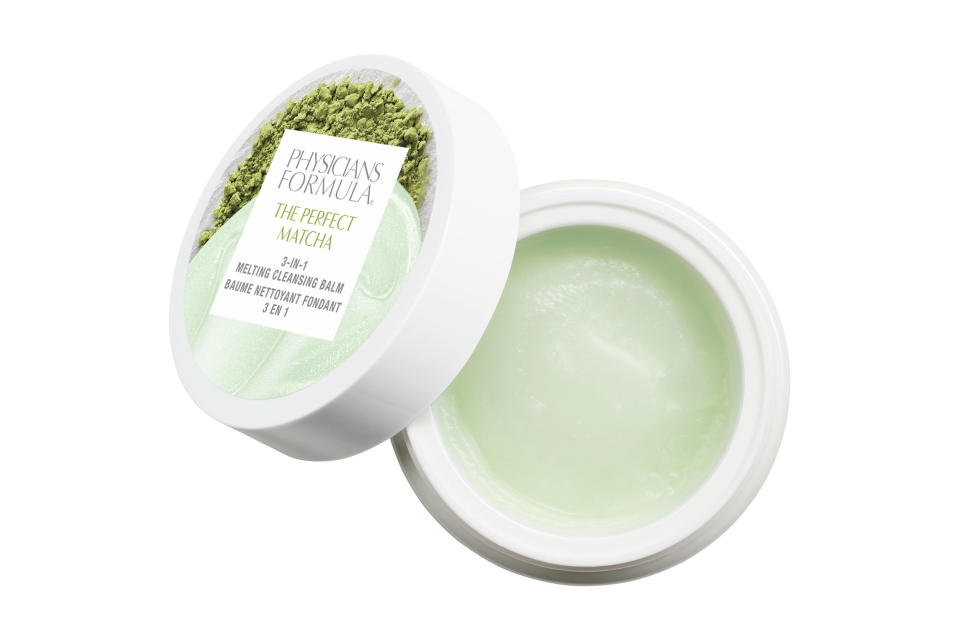
In September, Kourtney Kardashian began peddling matcha by way of her new vitamin and supplement brand, Lemme. One of the first three products included a matcha B12 energy supplement. Kardashian did not respond to requests for a comment regarding the effectiveness of matcha, nor did the scientists and doctors who the reality star-turned-entrepreneur touts on Lemme’s website. But in an Instagram post, the brand says, “We launch an energy gummy with one of our favorite ingredients: matcha. Packed with powerful antioxidants, matcha is the superfood for full-body benefits. Lemme Matcha was developed with three powerful ingredients: vitamin B12 to support cellular energy and organic matcha [plus] Coenzyme Q10 to help you feel your best, from work to play. It’s an age-old go-to for full body benefits and an all-around lifted spirit.”
But not everyone is convinced matcha can cure burnout in consumers’ increasingly busy lives.
One such person is Candice Kumai, a natural food chef and author of several books, including “Kintsugi Wellness: The Japanese Art of Nourishing Mind, Body and Spirit.”
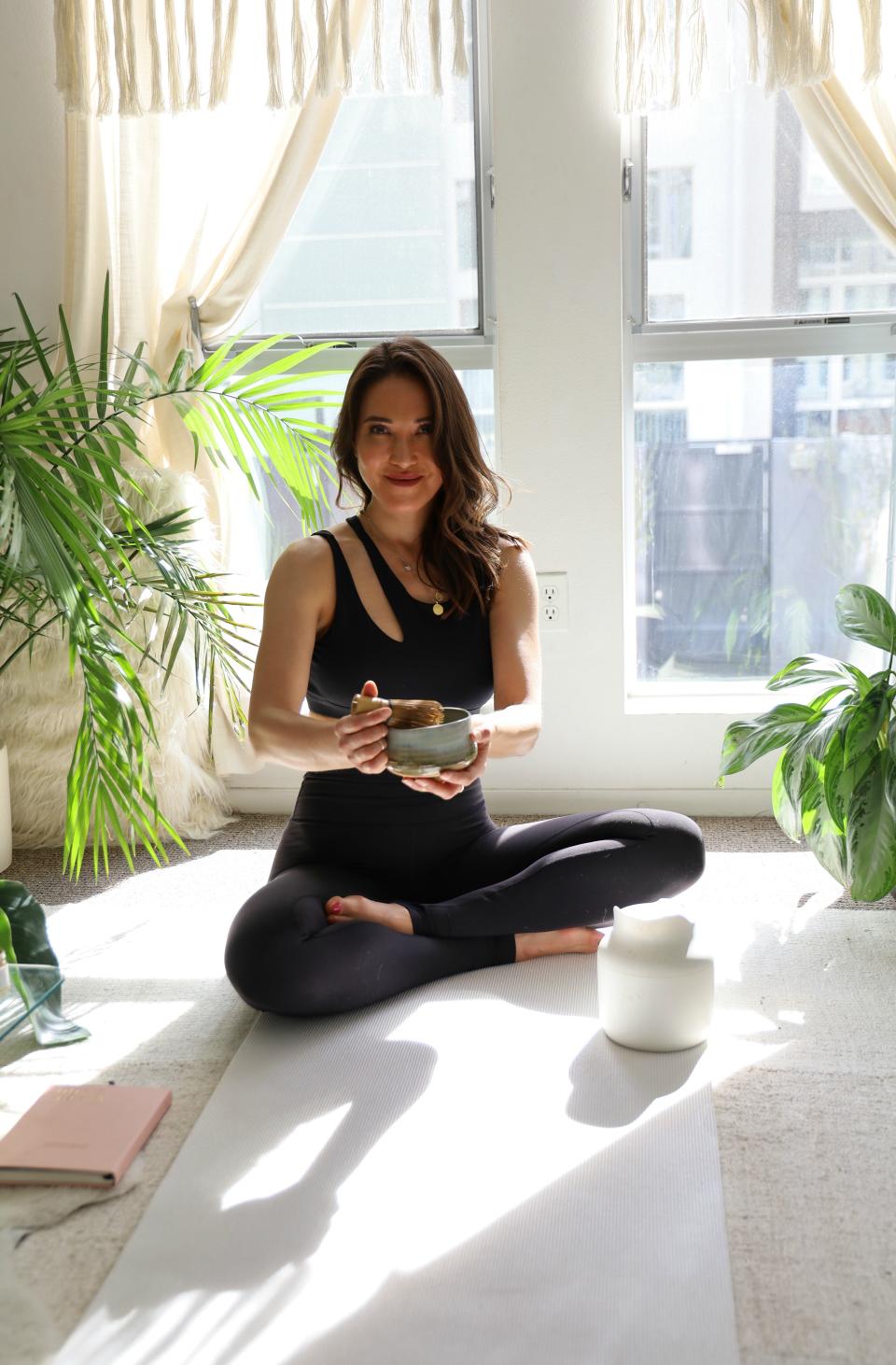
While Kumai acknowledges that matcha does contain L-theanine, an amino acid found in green tea “which can help one to relax while staying focused,” she adds that “the idea that matcha can reduce anxiety or burnout is not a Japanese-based claim.”
“Matcha is a prized ingredient brought to life by monks. It’s the reason why we would never tout these kinds of health claims,” says Kumai, who has been educating consumers on matcha and its benefits for more than a decade and has her own brand of matcha-related products.
“This type of marketing through unfounded claims is a very American-Westernized way of trying to sell someone a product,” she says. “Japanese-American and Japanese matcha purveyors are not being heard or seen as much as social media influencers [who share] incorrect information. My Japanese grandmother and Great Auntie Takuko still teach me the traditions of matcha in the mountains of the countryside of Japan. It is imperative and important that we take this seriously and share information from the Japanese by the Japanese to the general public.”
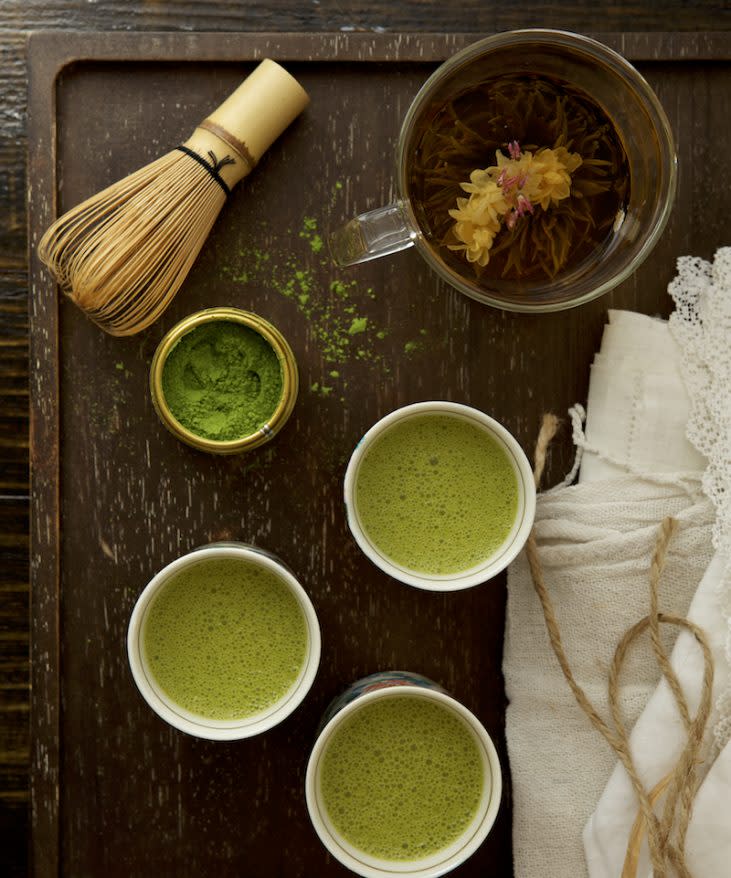
As levels of anxiety and burnout continue to rise amid uncertain times — marked by a global pandemic, inflation, geopolitical turmoil and natural disasters — people have a stronger desire to take care of themselves. One report pegged the global wellness industry to be worth roughly $7 trillion by 2025.
“Since I launched [Sorate] during COVID[-19], I think if it wasn’t a health product, I would have closed the brand after a month,” says Mella, explaining that the brand’s revenues have grown 260 percent since September 2020.
The growing business opportunity includes an interesting number of younger consumers — Millennials and Generation Z — choosing tea over coffee. A 2021 report by data firm YouGovAmercia found that 63 percent of Gen Z-ers don’t drink coffee at all. A similar report this year by research firm Study Finds found that Millennials make up 60 percent of Americans who prefer tea over coffee, all of whom tea brands are surely hoping to target with their latest matcha products. A report by data firm Million Insights valued the global matcha tea market at $1.6 billion in 2018, and expects that number to grow by about 4.7 percent each year until 2025.
“Consumers have found an interest in matcha as an alternative to coffee due to increasing trends on social media and its increased availability in the U.S.,” says Kumai, who added that there’s been an increased interest in her matcha brand and books since the onset of the pandemic.
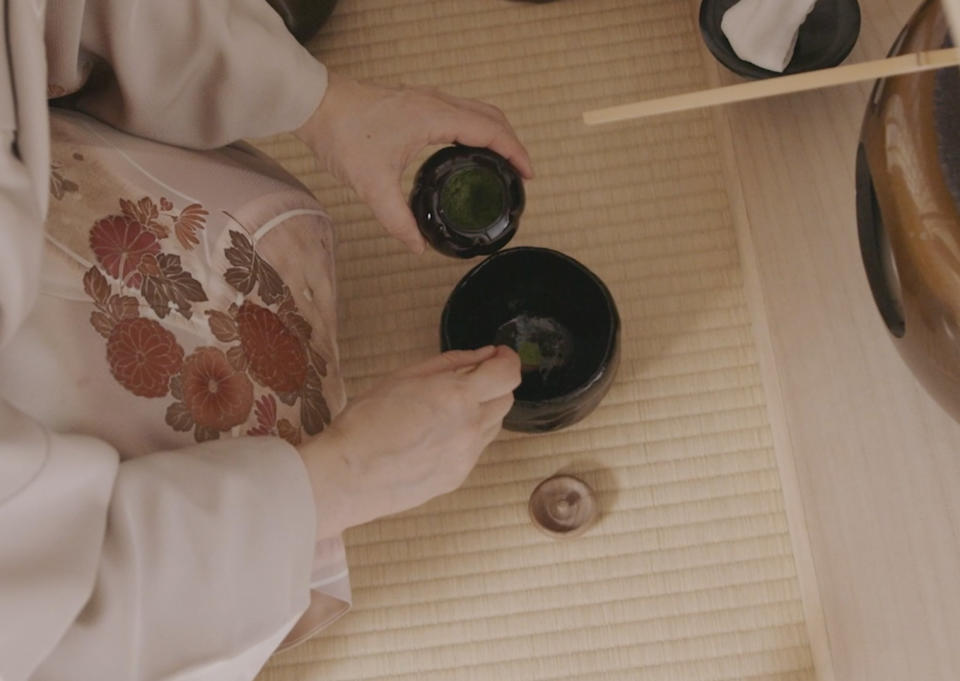
Mella says she’s now in the process of launching matcha supplements — “So if you’re traveling and you don’t want to carry the matcha, you just take the pill” — and a matcha makeup line (coming in 2023), by way of a $1 million fundraising round.
“There are a lot of people switching from alcohol to non-alcoholic drinks, mocktails,” Mella says. “And tea is, like, zero calories. And people are really interested in [tea] recipes. It’s small changes in the routine that can have an effect in the long term.”

